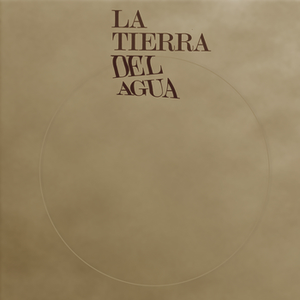Unha Noite Na Eira do Trigo
Uxía Lyrics
Jump to: Overall Meaning ↴ Line by Line Meaning ↴
Ó refrexo do branco luar
Unha nena choraba sin trégolas
Os desdés dun ingrato galán.
I a coitada entre queixas decía:
Xa no mundo non teño a ninguén,
Vou morrer e non ven os meus ollos,
Os olliños do meu doce ben.
Camiñaban nas alas do vento
I o lamento repetía
Vou morrer e non ven o meu ben.
Lonxe dela de pé sobre a popa
Dun aleve negreiro vapor
Emigrando camiño de américa
Vai o probe e infeliz amador.
I ó mirar as xentís anduriñas
Cara a terra que deixa cruzar
Quen pudera dar volta pensaba
Quen pudera convosco voar.
Mais as aves e o buque fuxían,
Sin ouir seus amargos lamentos,
Solo os ventos repetían,
Quen pudera convosco voar.
Lairaraira ...
Noites craras de aromas e lúa,
Desde entón que tristeza en vós hai
Pros que viron chorar unha nena,
Pros que viron un barco marchar.
Dun amor celestial verdadeiro,
Quedou solo de bágoas a proba
Unha cova nun outeiro
I un cadavre no fondo do mar...
The song Unha Noite Na Eira do Trigo tells the story of a young girl who sits on a threshing floor at night, crying because of the mistreatment she received from a lover who has now left her. The moonlight gives her reflection and is the only source of light around her. The girl speaks of her sadness, expressing her despair from the loss of her sweetheart. She feels that she has no one left in the world and that she will soon die without seeing her lover again. Her words are full of melancholy, and they echo in the wind like a lament. The song goes on to describe the departure of the unfaithful lover on a ship heading for America. As she watches the ship sail away, the girl longs to be with the birds that fly freely, oblivious to her grief. The song ends with a haunting revelation that the girl died alone, leaving behind only a grave on a hill and a corpse at the bottom of the sea.
The song Unha Noite Na Eira do Trigo is representative of the traditional Galician folk music genre, which is characterized by its lyrical depth and social commentary. The song has emerged as a Galician anthem, symbolizing the pain of a nation that has toiled for centuries to maintain its language, culture, and dignity.
Line by Line Meaning
Unha noite na eira do trigo
On a night in the wheat field
Ó refrexo do branco luar
In the reflection of the white moonlight
Unha nena choraba sin trégolas
A girl cried without stopping
Os desdés dun ingrato galán.
Due to the mistreatment of an ungrateful admirer.
I a coitada entre queixas decía:
And the poor thing, among complaints, said:
Xa no mundo non teño a ninguén,
I have no one in this world anymore,
Vou morrer e non ven os meus ollos,
I will die without seeing my sweet love's eyes,
Os olliños do meu doce ben.
My darling's eyes.
Os seus ecos de malencolía,
Her echoes of melancholy
Camiñaban nas alas do vento
Walked on the wings of the wind
I o lamento repetía
And repeated the lament
Vou morrer e non ven o meu ben.
I will die without seeing my love.
Lonxe dela de pé sobre a popa
Far from her, standing on the stern
Dun aleve negreiro vapor
On a treacherous slave ship
Emigrando camiño de américa
Emigrating to the path of America
Vai o probe e infeliz amador.
Goes the poor and unhappy lover.
I ó mirar as xentís anduriñas
And while looking at the gentle swallows
Cara a terra que deixa cruzar
Flying towards the land it leaves behind,
Quen pudera dar volta pensaba
He thought, if only he could turn back,
Quen pudera convosco voar.
If only he could fly with them.
Mais as aves e o buque fuxían,
But the birds and the ship fled away
Sin ouir seus amargos lamentos,
Without hearing their bitter laments
Solo os ventos repetían,
Only the winds repeated
Quen pudera convosco voar.
If only he could fly with them.
Lairaraira ...
Lairaraira...
Noites claras de aromas e lúa,
Clear nights of aroma and moonlight
Desde entón que tristeza en vós hai
Ever since then, there has been sadness in you
Pros que viron chorar unha nena,
For those who saw a girl cry
Pros que viron un barco marchar.
For those who saw a ship depart.
Dun amor celestial verdadeiro,
Of true heavenly love,
Quedou solo de bágoas a proba
Only the proof of tears remained
Unha cova nun outeiro
A grave on a hill
I un cadavre no fondo do mar...
And a corpse at the bottom of the sea...
Writer(s): UXIA DOMINGUEZ SENLLE, PAULO SERGIO DE MATOS BORGES
Contributed by Oliver W. Suggest a correction in the comments below.
